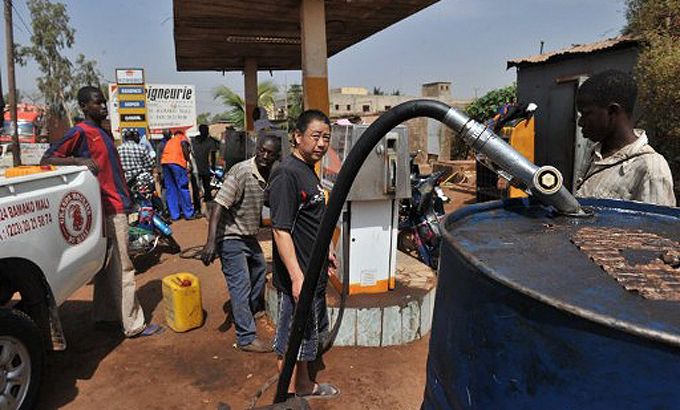
Are sanctions beginning to bite in Mali?
As fears grow over the worsening humanitarian situation, we ask if the impoverished country can survive sanctions.
The UN Security Council says it is gravely concerned about the worsening humanitarian situation in Mali and is calling on all parties to allow aid organisations to help those in need.
But how can aid agencies get to those suffering in a country effectively divided in two by recent fighting and where international sanctions, imposed after last month’s coup, are beginning to bite?
The UN Refugee Agency (UNHCR) has said it is “deeply concerned” by the deteriorating political and security situation in the country where thousands of people continue to flee their homes.
|
“The situation for the people inside [northern Mali] is dire, particularly because security has completely broken down. What we are hearing is that people are in a terrible state of fear, hiding in their homes, services are non-existent and [there is] mayhem in the streets.“ – Melissa Fleming, a UNHCR spokesperson |
Tuareg rebels are now in control of most of northern Mali – where they want to set up their own independent state. But there are also other armed groups in the area, some linked to al-Qaeda, and there are reports of looting, attacks and rape.
The UN World Food Programme (WFP) says it has been forced to stop delivering food in parts of northern Mali after its offices and warehouses were ransacked.
In the country’s capital, Bamako, economic sanctions imposed by neighbouring countries after the military coup on March 22 are beginning to be felt.
Mariko Mori, a blacksmith who runs a workshop that employs 10 people, says electricity rationing is severely affecting his business and that he and millions like him are being unfairly punished by the international sanctions.
“If the situation doesn’t change our families will suffer a lot. I’m a father of four children. If I can’t make money because of the power cut or the sanctions, that’s not good for my family,” Mori says.
In just a matter of days, the people will also start to feel the effects of a fuel shortage. And while there is no panic at petrol stations yet, people are beginning to get worried.
The vast majority of Malians run small businesses, living from day to day. If the money dries up, their companies will fail quickly. Mali’s accounts in regional banks are frozen – the harshest measures ever imposed on a West African country.
So will the impoverished, landlocked Mali be able to cope with international sanctions?
Joining Inside Story with James Bays to discuss this are: Melissa Fleming, the chief spokesperson for the UNHCR; William Moseley, a professor of Geography and African Studies at Macalester College and a visiting scholar at the University of Botswana; and Alessandra Giuffrida, an anthropologist and research associate at the University of London’s School of Oriental and African Studies who has spent time studying and living with the Tuareg in northern Mali.
| “[Islamist groups] don’t have much support at all [from among the general population in northern Mali] …. I think it is very important to let audiences know throughout the world that the MNLA [the Tuareg group the National Movement for the Liberation of Azawad] has nothing to do with terrorism and their action is actually an action of defence and protection of civilians in the north of Mali.”
Alessandra Giuffrida, an anthropologist |